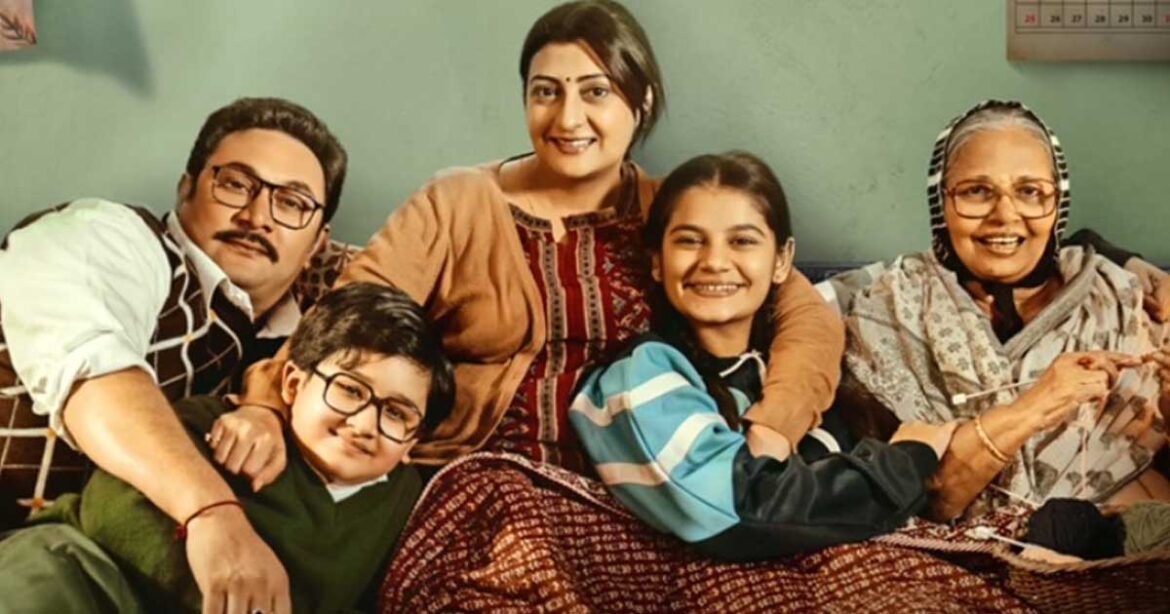Winter Tale:
It is a good thing that the second season of Yeh Meri Family has just five episodes, because once the cuteness of ordinary family squabbles wears out, there’s not much to hold the attention of the viewer. Even nostalgia—if it can be strongly evoked—can go just this far before crashing into tedium.
Five years after the first season of this TVF show, the focus is on a different family—the Awasthis, living somewhere in UP. The narrator is disgruntled 15-year-old Ritika (Hetal Gada), who has the usual teen problems—lack of privacy, unrequited love, exam stress and a stalker. In the first episode, when Ritika is demanding a room to herself, instead of having to share with her messy younger brother Rishi (Anngad Maaholay), their grandmother (Veena Mehta) descends and she has to no share her bed and blanket with two people, instead of one.
The tagline of this Amazon miniTV series is ‘Winter of 1990s’ which just means quilts and winter clothing; the mention of bonfires, roasted peanuts, revdis, etc. is wrapped up in the title track, Dekho thand ka mausam aaya, but the highs and lows of the bitter north India winter do not form part of the narrative.
The episodes given names like Apna Kamra, Cable TV, Parent-Teacher Meeting, Party, Blank Calls, could have taken place in any decade of the current century, but for the absence of computers, cell phones and OTT.
The era, for those who might remember, is marked in the show with several mentions of Aishwarya Rai (who had win the Miss World crown in 1994), Doordarshan, cable TV, Banegi Apni Baat, Chitrahaar, Agneepath, Ruf and Tuf Jeans, cassette players, push button phones and newly introduced caller id devices; The cars are Fiats and scooters Kinetic Hondas. The costumes, however, could be from a small town today.
The parents are Neerja (Juhi Parmar), a strict school teacher, who has been nicknamed Kiran Bedi, and Sanjay (Rajesh Kumar), a mild-mannered telecom engineer, often harassed by the city’s dead phone lines. The events that transpire in the five episodes—director Mandar Kurundkar is given flimsy material to work with– are not overly dramatic, but strengthen the bonds between Ritika and others in the family.
Like the rebuff from the boy Ritika has a crush on, reveals to her the mother’s softer side, instead of the avatar that is always constantly fuming “ek thappad doongi” and always saying “no” before even listening to the request. Her fear of maths—and who doesn’t have exam nightmares well into adulthood?—ups her affection for her father. The parents are not deliberately discriminatory, but it is always the daughter who is asked to do household chores, and the ten-year-old brother flashing machismo at that age is just a little bit discomfiting.
Except for the blank calls and stalking episode, that would still bring to mind the terror every adolescent girl must have suffered in the past, the others stories are bland and simplistic. Everyone feels nostalgic for different things depending on their own experiences, unless it is an event big enough to induce collective nostalgia. It is strange that the post Babri Masjid turmoil is blanked out, maybe because it interferes with memories of innocence.
The show is rescued by the actors—all of whom have delivered on the warmth and crankiness of a close-knit family without putting on any hum saath saath hain fakery. However, it is time to drop the fat best friend stereotype.
(This piece first appeared in rediff.com)

